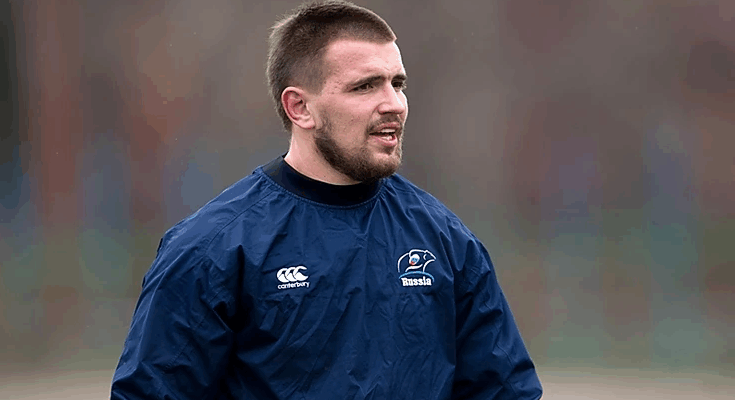In the demanding world of professional rugby, victories are celebrated, and defeats are dissected with equal fervor. Following a particularly challenging encounter for his “Metallurg” squad against “Lokomotiv,” head coach Viktor Gresev offered a refreshingly candid, albeit stark, assessment of his team`s performance. His words, devoid of platitudes, paint a clear picture of the hard lessons learned on the pitch – a masterclass in objective, if painful, self-reflection.
The Unforgiving Nature of Unforced Errors
Gresev didn`t mince words, identifying “very many unforced and foolish errors” as a primary contributor to the negative outcome. In rugby, “unforced errors” aren`t merely minor slip-ups; they are fundamental missteps in execution, often born from pressure, a momentary lapse in concentration, or perhaps, a touch of overzealousness. A dropped pass in the opposition`s 22, a missed tackle in a critical defensive moment, or a penalty conceded in an advantageous position – these seemingly isolated incidents accumulate, chipping away at momentum and gifting opportunities to the opponent. Such errors are particularly galling for a coach because they are, in theory, preventable, lying squarely within the team`s control. Their “foolish” nature, as Gresev notes with a hint of professional exasperation, implies a level of preventable oversight that can be deeply frustrating for any strategist.
The Cracks in Communication: A Defensive Breakdown
Perhaps even more concerning than individual errors was Gresev`s observation that “communication broke down in positional defense.” Rugby is a game of continuous adaptation, rapid decision-making, and often, organized chaos. Effective positional defense relies heavily on players constantly communicating their roles, identifying threats, and adjusting their lines in unison, like a well-drilled, moving wall. When this vital communication falters, gaps emerge, leading to missed assignments and allowing the opposition to exploit vulnerabilities with alarming ease. It’s a collective failure, a systemic issue that, when exposed, can lead to a quick cascade of points against the defending side. The tactical blueprint might be sound on paper, but without the vocal cues and non-verbal understanding between players, the structure crumbles under the relentless pressure of a top-tier opponent.
A Glimmer Amidst the Gloom: Set Piece Resilience
Interestingly, Gresev also highlighted an area where his team did perform effectively: “worked well in mauls and lineouts.” In the rugby lexicon, these are known as set pieces – highly structured phases of play where the ball is reintroduced after a stoppage, involving intense physical contests for possession. Mauls (where players bind around a ball carrier standing upright, driving forward) and lineouts (where players jump to catch a ball thrown in from the touchline) are crucial for securing possession and launching attacks. That “Metallurg” managed to perform well in these structured, often bruising, elements suggests a bedrock of physical effort and technical understanding that remains intact, even when other facets of their game faltered. This provides a tangible point for the coaching staff to build upon, a silver lining in a rather grey post-match sky.
Facing the Numbers: Acknowledging the Deficit
Gresev`s acknowledgment that the “result is overly negative” and “the gap is already too big” speaks volumes about the significant score difference established in the match. It`s a frank admission of the uphill battle his team now faces, particularly if this was the first leg of a two-game aggregate series. There`s a certain stoicism in this acceptance, a clear-eyed view of the scoreboard that leaves no room for delusional optimism. This isn`t defeatism; it`s a pragmatic recognition of the current reality, crucial for any strategic regrouping. One cannot solve a problem without first admitting its existence, and Gresev, it seems, is well past the denial stage.
The Enduring Spirit: “We Will Play to the End”
Despite the numerical disadvantage and the catalog of errors, Gresev`s concluding remark resonates with the quintessential spirit of rugby: “We will play to the end.” This isn`t a promise of miraculous comebacks against overwhelming odds, but a commitment to professionalism, sportsmanship, and the intrinsic value of competition itself. It underscores the belief that every minute on the field offers an opportunity to learn, to improve, and to uphold the team`s integrity. For the players, it`s a directive to maintain focus, to fight for every inch, and to finish the contest with pride, regardless of the ultimate outcome. For the fans, it`s a testament to the team`s character, a promise that effort will not wane, even when the scoreboard offers little immediate solace.
The Road Ahead: Dissection and Determination
As “Metallurg” prepares for the return leg, the focus will undoubtedly be on “analyzing moments” and meticulous preparation. This involves detailed video reviews, intense training sessions targeting specific weaknesses, and a renewed emphasis on communication drills. Gresev`s blunt assessment, while painful in the immediate aftermath, serves as a vital catalyst for improvement. It`s a technical debrief, yes, but also a call to arms for a team looking to refine its craft and demonstrate resilience in the face of adversity. The journey of a rugby season is long, and even the most “foolish” errors can, paradoxically, become the building blocks for future successes, provided they are addressed with unwavering honesty and steely determination.









